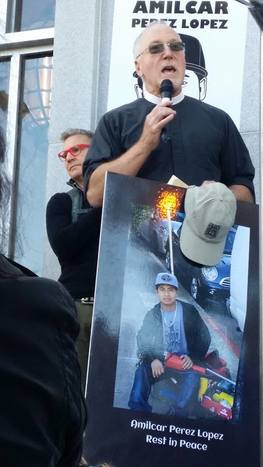
On episode 65 of the Iconocast Joanna interviews Father Richard Smith. Father Richard Smith was ordained a Jesuit priest in 1978 and worked for several years in parishes in Washington State. Later, after receiving a Ph.D. in Ethics and Social Theory from the Graduate Theological Union, he taught Religious Studies at various San Francisco Bay Area Universities, before working as a technical writer in Silicon Valley.
After his reception as an Episcopal priest in 2000, he served as a Priest Associate at St. John the Evangelist, working heavily for immigration reform in San Francisco's Mission District, a largely Latino community. In 2013, he became Vicar at St. John's and has worked to deepen his congregation's commitment to the larger community. He helped establish Mission Nightwalks, an effort by faith communities to stem both police and gang violence in their neighborhood. His congregation now opens their doors each weekday morning for homeless neighbors to sleep in a safe, dry space. And, with hostility toward immigrants increasing, St. John's has now become a Sanctuary congregation, accompanying and protecting newly arrived undocumented immigrants in San Francisco. Father Richard lives in San Francisco with his husband Rob and their son David.
Comments
11/14/2016 Comments the Iconocast: Zephyr Elise (episode 64)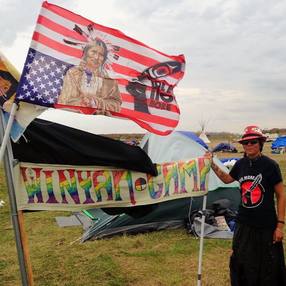
In episode 64 Joanna interviews Zephyr Elise. Zephyr Elise is mixed indigenous artist, filmmaker, animator, and activist. They graduated from the Evergreen State College in 2012 with a B.A. in film and a specialization in queer and indigenous studies. Born in San Diego, CA they have since lived up and down both coasts, but currently call the #NoDAPL encampment at Standing Rock, ND home.
In former incarnations, they have been an organizer with Idle No More- Two Spirits on Ohlone Lands, the executive media assistant for Indian Canyon Nation of Ohlones, and sat on the Two Spirit Council of Indian Canyon. They will be overseeing the Winyan (Lakota: woman) camp, a woman, children, and two spirit safe space in the Oceti Sakowin camp for the winter. Photo credit: Jools Joules Late in the day on October 22, 2016, Zephyr wrote the following reflection about the resistance of water protectors at Standing Rock, North Dakota. Within the next week Zephyr was arrested while praying and was released the next day. To support those who have been arrested, give to the Sacred Stone Legal Defense Fund. For a list of supplies needed at camp, visit sacredstonecamp.org/supply-list. "Today Oct 22, as always, we met as a camp for sunrise ceremony, prayers, and sacred songs. We left to go show support to relatives who had left earlier than we did to put their bodies on the line to shut down construction of this destructive pipeline. We walked close to ancestral burial sites and offered tobacco that our presence wouldn't disturb them any further than their rest has already been disturbed by the construction. Songs were sung as the womyn led the two mile March to a worksite. The hill was steep and our group got separated. One main body of about 100 continued forward to try to reach the worksite. Another 30 of us couldn't make the descent and crossing. Our small group was met with an armored police vehicle, officers with long range rifles or automatic rifles. We held the road at the crossing. Many sang sacred songs, others lit sage and smudged. Not knowing what else to do, I fell to my knees in front of 13 officers and prayed... Prayed for the water that is being threatened, for the four legged/feathered/finned/and crawling nations that are also being threatened. I prayed to my ancestors and the ancestors and spirits of these lands for help, guidance, wisdom, and protection. When I was finished prayed, I climbed the hill only to see our relatives being tear gassed and about 50 defenders rounded up and arrested. The rest of the group retreated towards us. We were told we could return the way we came, but then the police made a charge at those in the back that couldn't walk fast or run. More were taken. Our elders, children, and those alternately able or injured were threatened. Many were rescued by trucks who came to pick those in the rear up and carry them to safety. Many more had to run over a mile. My uncle was one who ran... A man who is terminally ill and a diabetic. He made sure the elders and children were safe and refused transport. He is a man who helped our group find their courage to resist when many were unsure. He is not alone out here. Many stayed in camp to pray and watch for our return. Many are still in camp praying for those who were taken. Many inipi (sweat lodge ceremony) will be held tonight to keep our spirits strong. Many grandmothers are cooking nonstop today in the various community kitchens to feed our bodies and heal our spirits. Many youth will run and laugh today reminding us why we fight and will continue to do so to guard these lands and our sacred waters. Mni (mini) wichoni (wee-cho-knee) is our rally cry for it is a sure truth, water is life. We survived our roughest day out here yet by standing together. We shall continue to stand strong for the waters, for the lands, for the next generations, for the ancestors. Please pray for us. It will only be getting more intense from here on out. Sending love, blessings and prayers from The NoDAPL camp, Dakota territories at Standing Rock." 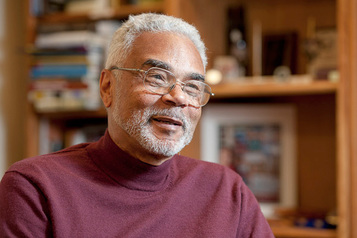
In episode 63 Joanna interviews Clayborne Carson who has devoted his professional life to the study of Martin Luther King, Jr. and the movements King inspired. Since receiving his doctorate from UCLA in 1975, Dr. Carson has taught at Stanford University, where he is now professor of history and founding director of the Martin Luther King, Jr., Research and Education Institute.
During his undergraduate years at UCLA, Dr. Carson participated in civil rights and antiwar protests, and many of his subsequent writings reflect his experiences by stressing the importance of grassroots political activity within the African-American freedom struggle. Carson's scholarly publications have focused on African-American protest movements and political thought of the period after World War II. His other publications include In Struggle: SNCC and the Black Awakening of the 1960s (1981); Malcolm X: The FBI File (1991); African American Lives: The Struggle for Freedom (2005, co-author); and a memoir, Martin's Dream: My Journey and the Legacy of Martin Luther King, Jr. (2013). 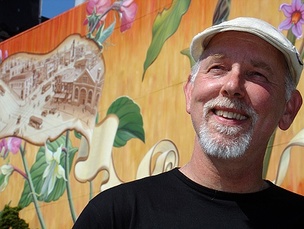
In episode 62 Joanna interviews Chris Carlsson. Chris is a writer, San Francisco historian, bicyclist, tour guide, photographer, and a book and magazine designer. He’s lived in San Francisco since 1978. He’s written two books (After the Deluge and Nowtopia) and edited six, including: Critical Mass: Bicycling’s Defiant Celebration and Ten Years That Shook the City: San Francisco, 1968-78.
He helped co-found Critical Mass in September 1992, and has ridden with Critical Mass rides in a dozen cities on three continents since then. He has directed Shaping San Francisco, a participatory community history project, since its inception in the mid-1990s, and continues to be co-director of the archive of San Francisco history at FoundSF.org. He also conducts award-winning bicycle history tours a dozen times a year, and hosts an ongoing Public Talks series in San Francisco. 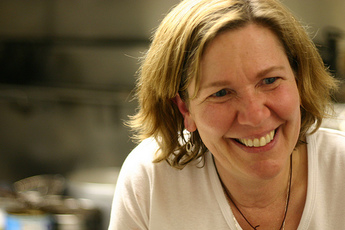
In episode 61 Joanna interviews Sara Miles. Sara is the founder and director of the The Food Pantry and serves as director of ministry at St. Gregory of Nyssa Episcopal Church in San Francisco. Her books include City of God: Faith in the Streets, Jesus Freak: Feeding Healing Raising the Dead and Take This Bread: A Radical Conversion. She speaks, preaches and leads workshops around the country, and her writing has appeared in the New York Times Magazine, the New Yorker, and on National Public Radio.
Joanna is joined by fellow interviewer Suella Lehman Gerber. Suella is pastor of Fellowship of Hope Mennonite Church in Elkhart, Ind., and was visiting San Francisco on sabbatical. 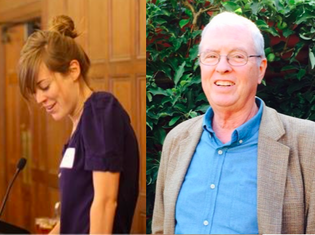
In episode 60 Joanna interviews Ellen Dahlke and Rick Ayers about education and liberation. Ellen is a former high school English teacher and currently coordinates the outside end of a GED program with radical leanings that was founded and is led by incarcerated men for incarcerated men.
Rick Ayers is an assistant professor of education at the University of San Francisco in the Urban Education and Social Justice cohort. He is author of A Teacher’s Guide to Studs Terkel’s Working, and the author of An Empty Seat in Class: Teaching and Learning after the Death of a Student. He has also co-authored with his brother Bill Ayers, Teaching the Taboo: Courage and Imagination in the Classroom. 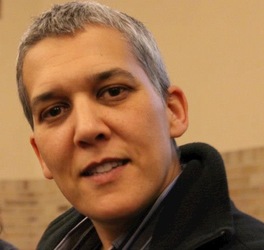
In this episode Joanna interviews Dalit Baum. Dalit Baum is the director of economic activism for the American Friends Service Committee (AFSC). Originally from Israel where she co-founded Who Profits from the Occupation, and of the Coalition of Women for Peace, Dalit now resides in the Bay Area. Dalit is a feminist scholar and teacher, who teaches about militarism and about the global economy in Israeli and American universities. She has been active with various groups in the Israeli anti-occupation and democracy movement, including Black Laundry, Boycott from Within, Zochrot, Anarchists against the Wall and Women in Black.
In her work with the AFSC, Dalit is dedicated to revealing and exposing corporations that profit from injustice: www.afsc.org/investigate. In November a new screen was introduced, based on research focused on the privatized prision industry in this country and human rights violations in Israel-Palestine. 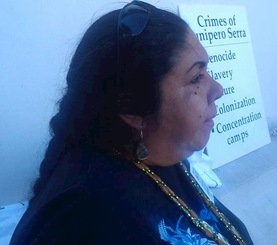
In this episode Joanna interviews Corrina Gould about the canonization of Junípero Serra and the enslavement of Indigenous Peoples in California missions.
Corrina is a Chochenyo and Karkin Ohlone woman and an activist in the Bay Area. She is the mother of three children and currently works as the Title VII Coordinator, Office of Indian Education at the American Indian Child Resource Center. She is also the Co-Founder and a Lead Organizer for Indian People Organizing for Change, a small Native run organization that works on issues affecting Indigenous people and sponsors an annual Shellmound Peace Walk to raise awareness of the desecration of the sacred sites in the greater Bay Area. On September 23, 2015, at the same time Serra was being canonized in Washington DC, Corinna and Joanna participated in a protest at Mission Dolores in San Francisco. Their conversation delves into current Indigenous activism and the practices that sustain it. photo credits: Corine Fairbanks (above), Joanna Shenk (below). Both taken on September 23, 2015 in front of Misson Dolores, San Francisco, California. 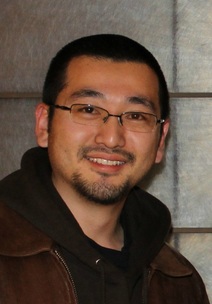
In this episode Joanna interviews Kazu Haga.
Kazu is the founder and coordinator of the East Point Peace Academy and is a trainer in Kingian Nonviolence. Having received training from elders including Dr. Bernard Lafayette, Rev. James Lawson and Joanna Macy, he teaches nonviolence, conflict reconciliation, organizing and mindfulness in prisons and jails, high schools and youth groups, and with activist communities around the country. Kazu has been active in various social change movements since 1998, including Occupy Oakland and the Movement for Justice for Oscar Grant. He currently resides in Oakland, CA. In this interview they discuss movement building and the tensions of nonviolence and "diversity of tactics" approaches, along with questions about accountability and what it takes to create beloved community. 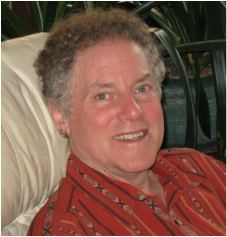
In this episode Joanna interviews Paul Kivel. Paul is a social justice educator, activist, and writer, and has been an innovative leader in violence prevention for more than 35 years. He is an accomplished trainer and speaker on men’s issues, racism and diversity, and the impact of class and power on daily life, among other things. Paul is the author of numerous books and curricula, including "Uprooting Racism: How White People Can Work for Racial Justice" and "You Call This a Democracy?: Who Benefits, Who Pays, and Who Really Decides." In this interview he discusses his latest book, "Living in the Shadow of the Cross: Understanding and Resisting the Power and Privilege of Christian Hegemony" and invites others to join the conversation.
|
AboutThe Iconocast is a collective project of a handful of radical practitioners, separated by thousands of miles, each exploring the way of Jesus in the Empire. Usually, episodes follow an interview format. We don’t always interview Christians or anarchists. Rather, we interview those who we believe have some wisdom to share for those who are exploring the intersection of Christianity and anarchism. Archivesep. 74: L.M. Bogad
ep. 73: Sarah Pritchard & David Brazil ep. 72: Chude Allen, part 2 ep. 71: Chude Allen, part 1 ep. 70: Beth Roy ep: 69: Carol Lee & Sarah Lee ep.68: David Solnit ep. 67: Elaine Enns & Ched Myers on Audre Lorde ep. 66: Elaine Enns, Ched Myers and "Beyond Vietnam" ep. 65: Father Richard Smith ep. 64: Zephyr Elise ep. 63: Clayborne Carson ep. 62: Chris Carlsson ep. 61: Sara Miles ep. 60: Ellen Dahlke & Rick Ayers ep. 59: Dalit Baum ep. 58: Corrina Gould ep. 57: Kazu Haga ep. 56: Paul Kivel ep. 55: Lynice Pinkard & Nichola Torbett ep. 54: Joerg Rieger ep. 53: Bill Ayers ep. 52: Micky Jones ep. 51: Sandhya Rani Jha ep. 50: Willie Baptist ep. 49: Thomas Gokey ep. 48: Anthony Nocella ep. 47: Mark VanSteenwyk ep. 46: Vincent Harding ep. 45: Mary and Peter . . . ep. 44: Noam Chomsky ep. 43: Jin S. Kim ep. 42: Ashanti Alston . . . ep. 41: Shannon Kearns ep. 40: Richard Beck ep. 39: Starhawk ep. 38: Calenthia Dowdy ep. 37: Robert Ellsberg ep. 36: Bruce Levine ep. 35: Bob Ekblad (part 2) ep. 34: Bob Ekblad (part 1) ep. 33: Alexia Salvaterria ep. 32: Seth Donnovan ep. 31: Goshen and . . . ep. 30: James H. Cone ep. 29: Joyce Hollyday ep. 28: Jonathan Moyer ep. 27: Carolyn Griffeth . . . ep. 26: Eda Uca ep. 25: Ed Loring ep. 24: Murphy Davis ep. 23: Ragan Sutterfield ep. 22: An Hour on Power ep. 21: Fr. Richard Rohr ep. 20: Fr. John Dear S.J. ep. 19: Anton Flores ep. 18: Becky Garrison ep. 17: Stanley Hauerwas ep. 16: Rita Nakashima Brock ep. 15: Cornel West ep. 14: Onelilove Alston ep. 13: Carol Rose ep. 12: Seth Martin ep. 11: Gender, Sexism . . . ep. 10: Richard Horsely ep, 09: Brian McLaren ep. 08: Wes Howard-Brook ep. 07: Mary Jo Leddy ep. 06: Jim Douglass (part 2) ep. 05: Jim Douglass (part 1) ep. 04: Waziyatawin (part 2) ep. 03: Waziyatawin (part 1) ep. 02: Ched Myers ep. 01: Nekeisha Alexis |
Search by typing & pressing enter

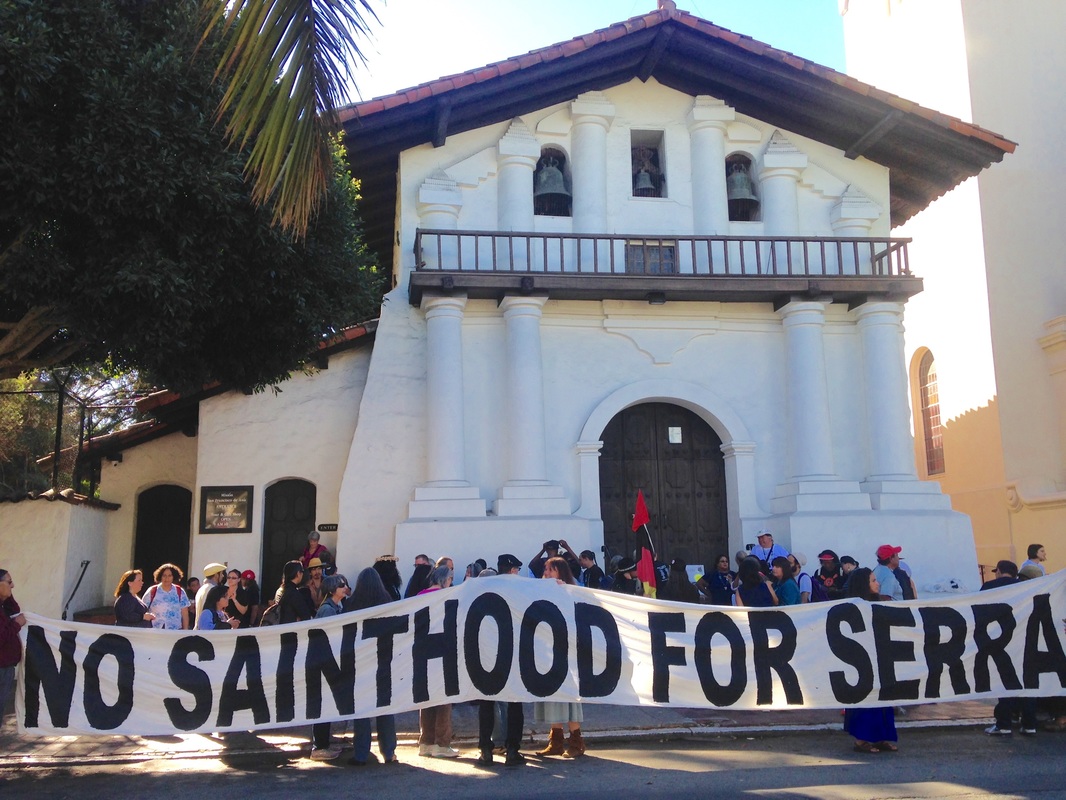
 RSS Feed
RSS Feed